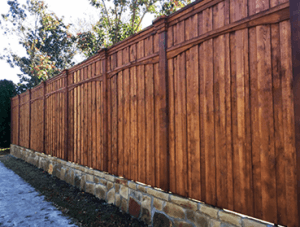MENUMENU
Posted on November 21st, 2016

A fence can serve as many things: privacy, protection, decoration, and safety. However, once a fence is installed, it becomes a permanent fixture on your property. In addition to choosing the type of fence and the right fencing material to suit your needs, it is equally important that you learn the code requirements for building a fence on your property.
In Pennsylvania, fencing regulations are set by the township or borough in which the property is located. There are a number of individual guidelines created by the area in question that govern the fence including:
In addition, there are areas within a borough or township that may have additional regulations for fencing, particularly when a Homeowner’s Association is involved, such as the color of the fence itself. So it is important to not only clearly understand the zoning regulations of where you live, but your Homeowner’s Association’s bylaws, when applicable.
Another important aspect to planning a fencing installation is knowing your property lines. In many cases, fences have to be installed a certain distance from property lines, and many a case has gone to a local municipal court over fencing boundary disputes. Your property survey may be on file with your county’s Recorder of Deeds, in which case it is important for you to have a copy.
Last, but not least, is knowing which permits are required prior to the fence installation. Again, Pennsylvania’s guidelines are not via the state, but subject to your local municipal office. When inquiring about the coding regulations, make a point to find out which permits you will need as well as the cost.
If you are interested in replacing your current fence or looking to have a new one installed on your property, contact the experts at Fence Maintenance Service. Serving Pittsburgh and its surrounding northern communities, Fence Maintenance Service can help you choose the right style and material that will suit your particular needs.